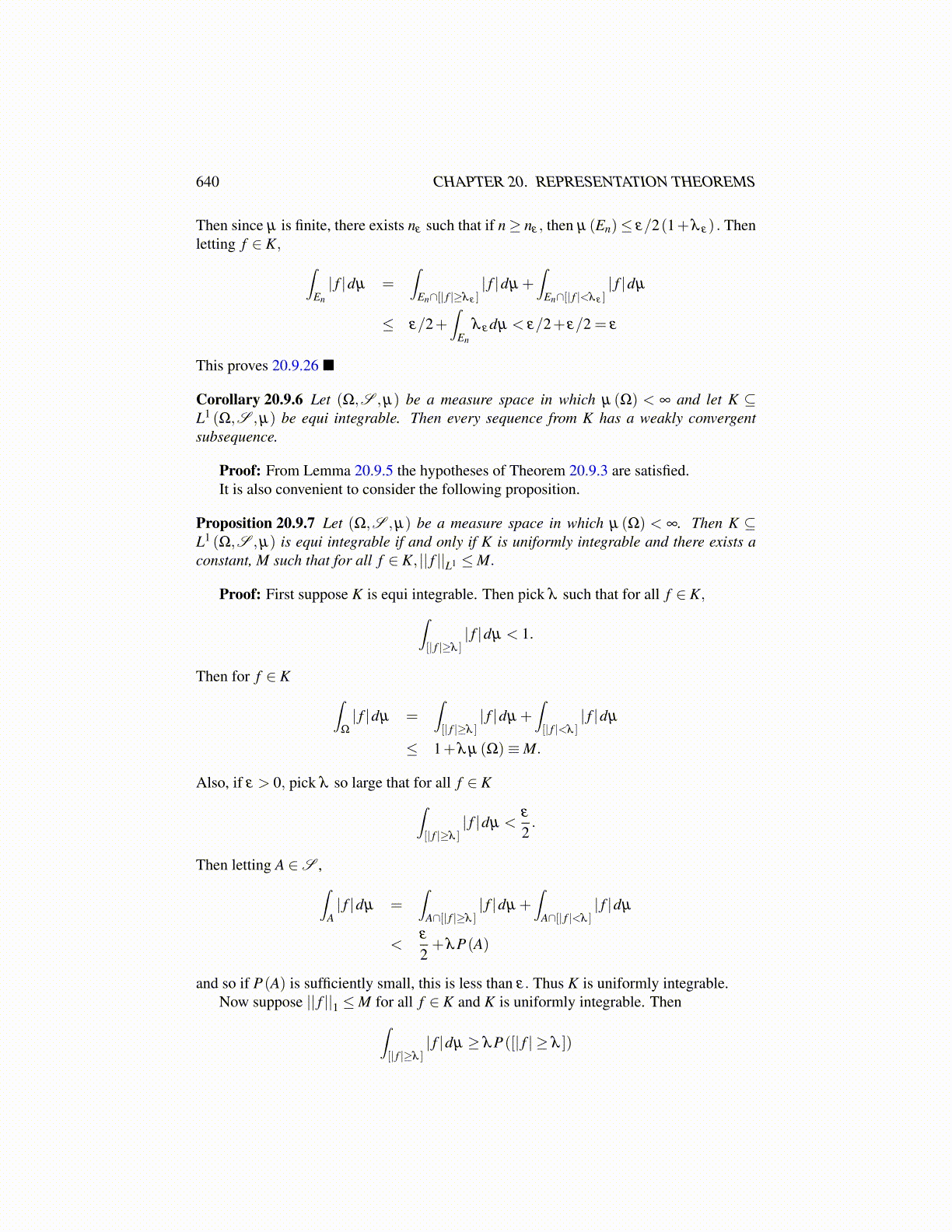
640 CHAPTER 20. REPRESENTATION THEOREMS
Then since µ is finite, there exists nε such that if n≥ nε , then µ (En)≤ ε/2(1+λ ε) . Thenletting f ∈ K, ∫
En
| f |dµ =∫
En∩[| f |≥λ ε ]| f |dµ +
∫En∩[| f |<λ ε ]
| f |dµ
≤ ε/2+∫
En
λ ε dµ < ε/2+ ε/2 = ε
This proves 20.9.26
Corollary 20.9.6 Let (Ω,S ,µ) be a measure space in which µ (Ω) < ∞ and let K ⊆L1 (Ω,S ,µ) be equi integrable. Then every sequence from K has a weakly convergentsubsequence.
Proof: From Lemma 20.9.5 the hypotheses of Theorem 20.9.3 are satisfied.It is also convenient to consider the following proposition.
Proposition 20.9.7 Let (Ω,S ,µ) be a measure space in which µ (Ω) < ∞. Then K ⊆L1 (Ω,S ,µ) is equi integrable if and only if K is uniformly integrable and there exists aconstant, M such that for all f ∈ K, || f ||L1 ≤M.
Proof: First suppose K is equi integrable. Then pick λ such that for all f ∈ K,∫[| f |≥λ ]
| f |dµ < 1.
Then for f ∈ K ∫Ω
| f |dµ =∫[| f |≥λ ]
| f |dµ +∫[| f |<λ ]
| f |dµ
≤ 1+λ µ (Ω)≡M.
Also, if ε > 0, pick λ so large that for all f ∈ K∫[| f |≥λ ]
| f |dµ <ε
2.
Then letting A ∈S ,∫A| f |dµ =
∫A∩[| f |≥λ ]
| f |dµ +∫
A∩[| f |<λ ]| f |dµ
<ε
2+λP(A)
and so if P(A) is sufficiently small, this is less than ε. Thus K is uniformly integrable.Now suppose || f ||1 ≤M for all f ∈ K and K is uniformly integrable. Then∫
[| f |≥λ ]| f |dµ ≥ λP([| f | ≥ λ ])